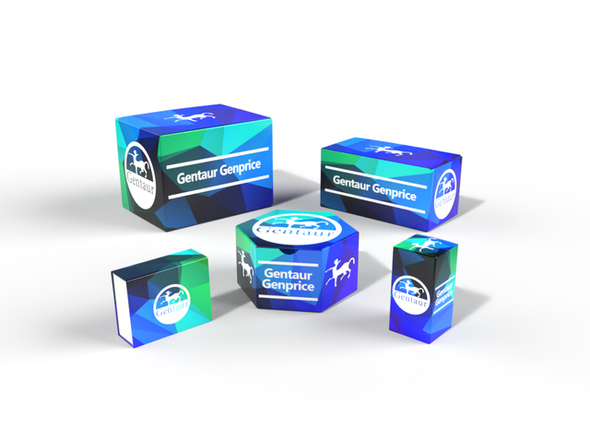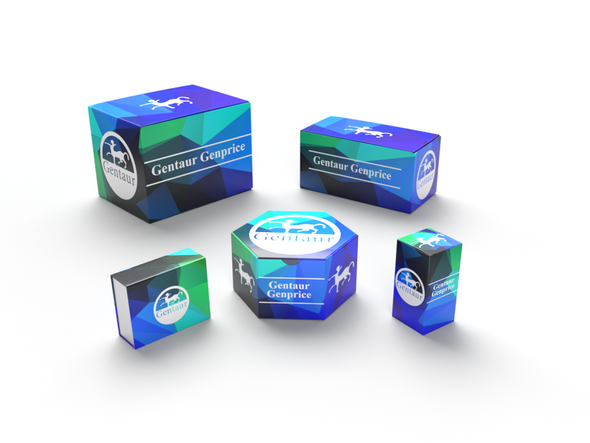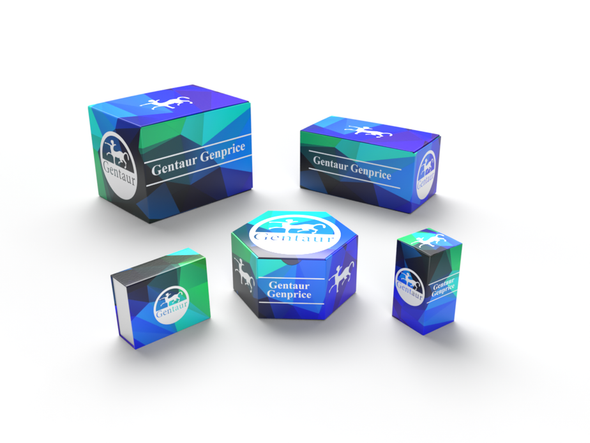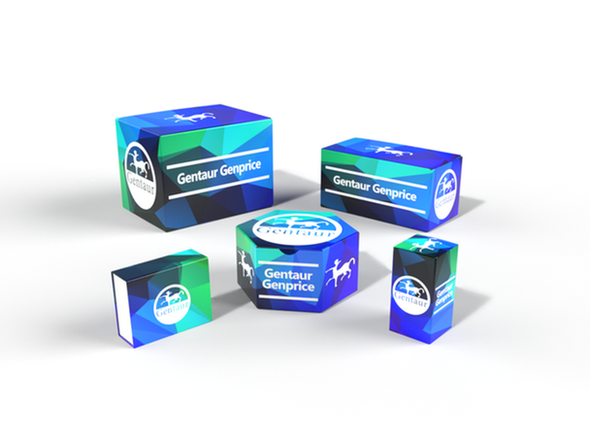Description
ACLY Antibody [6E7D7] | 23-966 | Gentaur UK, US & Europe Distribution
Host: Mouse
Reactivity: Human, Mouse, Monkey
Homology: N/A
Immunogen: Recombinant protein of human ACLY
Research Area: Cancer, Signal Transduction
Tested Application: WB, ICC, Flow
Application: WB: 1:500 - 1:2000
ICC: 1:50 - 1:200
Flow: 1:20 - 1:50
Specificiy: N/A
Positive Control 1: HeLa
Positive Control 2: K-562
Positive Control 3: COS-7
Positive Control 4: HepG2
Positive Control 5: Raji
Positive Control 6: NIH/3T3
Molecular Weight: Observed: 121kDa
Validation: N/A
Isoform: N/A
Purification: Affinity purification
Clonality: Monoclonal
Clone: [6E7D7]
Isotype: IgG
Conjugate: Unconjugated
Physical State: Liquid
Buffer: PBS with 0.02% sodium azide, 50% glycerol, pH7.3.
Concentration: N/A
Storage Condition: Store at -20˚C. Avoid freeze / thaw cycles.
Alternate Name: ACL, ATPCL, CLATP, ATP-citrate synthase, ATP-citrate (pro-S-) -lyase, citrate cleavage enzyme
User Note: Optimal dilutions for each application to be determined by the researcher.
BACKGROUND: ATP citrate lyase is the primary enzyme responsible for the synthesis of cytosolic acetyl-CoA in many tissues. The enzyme is a tetramer (relative molecular weight approximately 440, 000) of apparently identical subunits. It catalyzes the formation of acetyl-CoA and oxaloacetate from citrate and CoA with a concomitant hydrolysis of ATP to ADP and phosphate. The product, acetyl-CoA, serves several important biosynthetic pathways, including lipogenesis and cholesterogenesis. In nervous tissue, ATP citrate-lyase may be involved in the biosynthesis of acetylcholine. Multiple transcript variants encoding distinct isoforms have been identified for this gene.

![ACLY Antibody [6E7D7] ACLY Antibody [6E7D7]](https://cdn11.bigcommerce.com/s-1rdwiq712m/images/stencil/608x608/products/480737/486566/gentaur-genprice__26005.1661610467__29809.1661628092__75433.1661676199__77988.1661684280__64362.1661692443__02085.1662049603__45075.1662119302__91744.1662191540__21580.1662291419__04080.1663498285.png?c=1)




